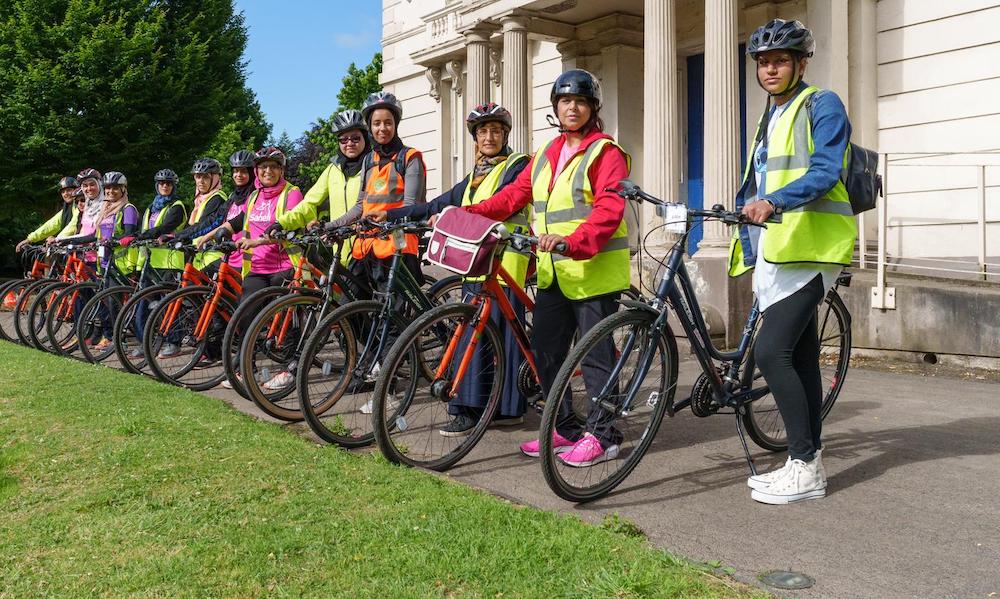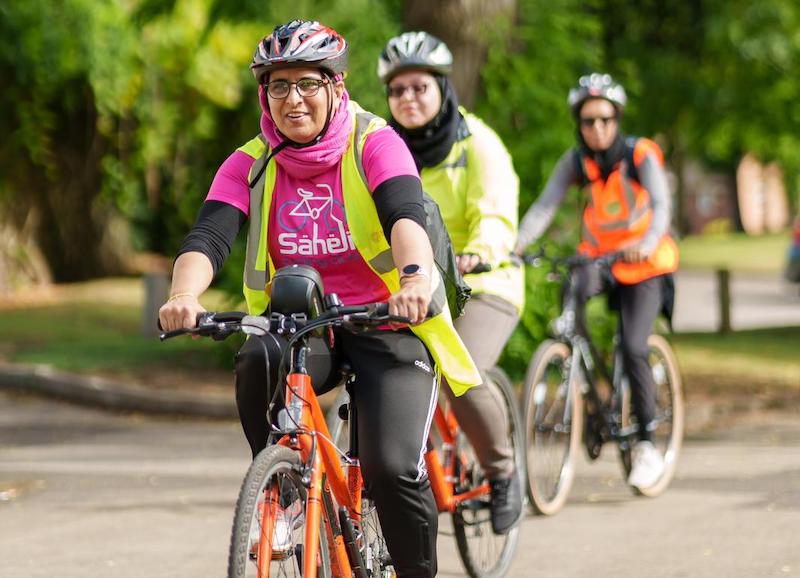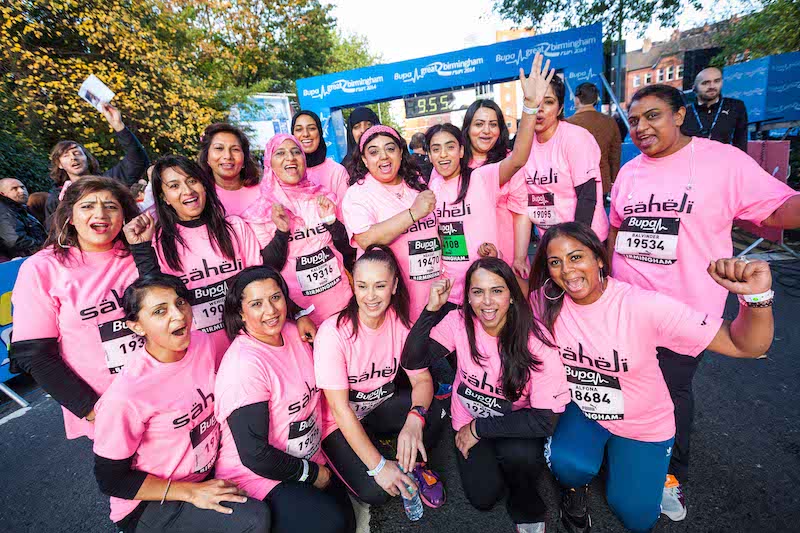
Sähëlï Hub Supporting Local Communities to be Active
National Sporting Heritage Day UK Special
September 30, 2022
Today is National Sporting Heritage Day in the UK which promotes ways that sport can be used to inspire and celebrates the impact sport has on our lives. In recognition of the day and its theme, diversity in sport, we spoke to Sähëlï Hub’s Founder Naseem Akhtar about the charity’s work to uplift local communities, especially women, through sport. Sähëlï means ‘female friend’ in many South Asian languages.
Sähëlï Hub was founded 21 years ago to engage more women in sport and physical activity in Birmingham, UK. However, they quickly realised that Asian women were the only group who weren’t engaging in their local neighbourhood activities and therefore focused their efforts on changing this. Asian and Asian British people make up 60% of the population in the West Midlands.
“What we all decided was, as a woman, whether you were White, British, Asian, Sikh, Hindu-Muslim or non-religious, there was nowhere in the community for women to go. As a woman on your own, especially 21 years ago, there was no real space that you could call your own. At that time, we had the biggest sports centre on the edge of our neighbourhood, but nobody in the community actually went there. There was a big gap and bridge between what the community wanted to do, what was being delivered and how women especially got through that door.”
The organisation decided to ask local women what they wanted and found out that it was a health and fitness facility run by women, for women. They also uncovered that the timings of the sessions and the men in and around the fitness centre building were major deterrences for women in attending. “There was no understanding of culture and community, especially for women. All women feel the pressure of not looking the right part or being judged. I just think there’s an added pressure of the cultural norms on Asian women.”

Sähëlï Hub began running sporting activities for local women and girls, including rock climbing, skiing, canoeing, biking and more, to help them achieve the minimum requirements of physical activity – 30 minutes a day, 5 days a week. The goal is to help reduce the risk of a range of health conditions including coronary heart disease, stroke and diabetes. Diabetes is the most common health issue among Asian, Black and minority ethnic groups in the UK.
“There are not enough women-only provisions. If you look at the kind of communities and culture we come from, especially those who are most likely to need physical activity and sport, then many of those women from an ethnic minority background - especially Asian as they are more likely to be diabetic.”
They recently secured a culturally appropriate diabetes programme for the community and are working with the NHS’s Birmingham and Solihull Integrated Care System in Washwood Heath, one of the most deprived areas of Birmingham.
With funding and support from Sport England and the National Lottery, Sähëlï Hub was able to get a permanent centre. They now operate out of four parks, three city council wellbeing centres and four GP surgeries (offices), welcoming 1500 women every single year. Since 2001, the charity has had over 21,425 participants, 95% women, 94% from Black and ethnic minority communities and 91% from the poorest areas of Birmingham.
“Sähëlï Hub has offered me a safe environment to learn to ride a bike, pushing me out of my safety zone, encouraging me and making me believe I can do it,” said one participant. Another explained that the charity has a positive effect on her mental and physical wellbeing. “Mentally, I practice mindful cycling: focussing on the moment and the feeling of flying on a bike, the gentle breeze on my skin, the sounds of the birds chirping in my ears. I jump out of bed so I can get to the park for the bike session. It has given me a newfound independence and confidence. At the start, I could only do one mile around the park and now I comfortably do five miles.”
The organisation also conducts social clubs, such as ‘tea and toast’ and ‘crochet and chai’ to engage with women who think they’re not fit enough to engage in sport. However, 50% of the women who came to a social club ended up taking up a physical activity as “they met somebody like them, somebody who is wearing a hijab like them, someone who's older like them, someone who's overweight like them.”

Naseem also shared the importance of a diverse and reflective workforce to be able to engage local communities. “If you do not have enough members in your workforce reflecting the community you want to reach, then you don't have any understanding of how to engage and bring people on board. And then what happens is you have lovely centres built on the edge of neighbourhoods that nobody goes to."
“So, the reason you need a reflective workforce, the reason you need to have representation, the reason why you need to start employing community people or engage in supporting, developing and growing local people is because you need to have that reach. They're not called the ‘hard to reach’ for no reason. They're called the ‘hard to reach’ because the centres that already exist don't know how to reach them.”
At our Beyond the Games 2022 summit in July, Naseem spoke about National Bodies not understanding the gaps that need to be filled locally. She explained that the groups need to improve their recruitment and selection to have the appropriate reach and understanding of grassroots communities. “99% of the time, I’m the only ethnic minority woman talking about physical activity or being in this field on a board. Either help to develop grassroots organisations and groups or don't. And if you're going to fund national bodies, they have to have a proportion of their funds that go to grassroots organisations to support and grow engagement of ethnic minority participation.”
Another issue she touched on is free provision. The cost of a gym membership in Birmingham is a deterrent for women, and especially women living in the most deprived neighbourhoods. "Statistically Asian women living in deprived areas are twice as likely to be unemployed than any other group in Birmingham."
“Provision needs to be local. I shouldn't have to travel miles for physical activity or sport. In your community, there should be provision locally for women only and it should be within walking distance. If you want people to participate, it must be free, it must be local and it should be representative of the community.”
Naseem ended by saying that the women who come to Sähëlï Hub may come through the door for physical activity or participate in a sporting activity, but they end up confident enough to get a qualification, volunteer or get their first job.